Medical examination, demography and digitalisation: 3D of Tatarstan medicine
Marsel Minnullin reported on the successes and announced massive robo-operations, and Rustam Minnikhanov was worried about the low birth rate and... drunkenness of the population.
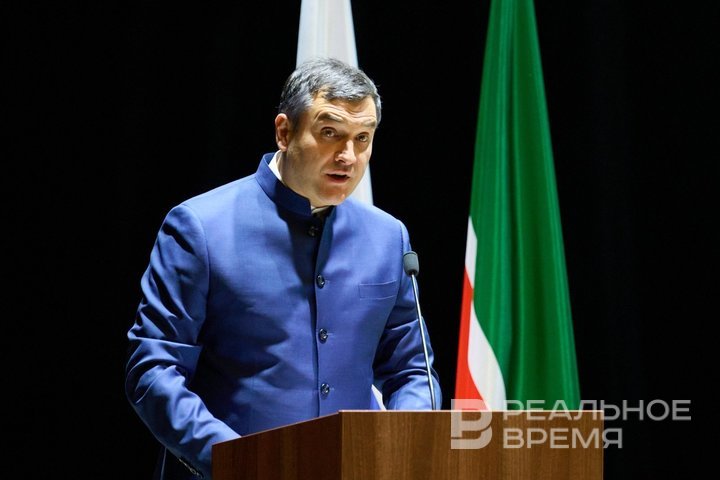
Operations in Tatarstan will be performed by a robot, and artificial intelligence will analyse the images and CT scans. The republic will continue to build FAPs and equip hospitals. Transplantology will be developed. They plan to reduce deaths from cardiovascular diseases and will continue two titanic battles — for medical examinations and for fertility. After all, despite the many positive aspects, there are still enough problems. The death rate in the republic has increased compared to last year. But for some reason, the birth rate does not want to grow, and the rais of Tatarstan, Rustam Minnikhanov, instructed to develop a special programme to fix this. It seems like it's time to “come up with something else” besides maternity capital. For more information about how the reporting board meeting of the Ministry of Healthcare of the Republic of Tatarstan went, see the Realnoe Vremya review.
Zero maternal mortality and a historical minimum for infant mortality
The reporting board meeting of the Ministry of Healthcare of the Republic of Tatarstan was, as always, well-attended. At first, Marsel Minnullin reported on how the year went in the area under his jurisdiction. The minister had something to brag about: in 2024, Tatarstan reached a historic low in terms of infant mortality, and for the first time in the history of the republic, no deaths of mothers during childbirth were registered. Here are other figures from the minister's report describing the year 2024 in the republic's healthcare sector:
- The mortality rate of children aged 0 to 17 years has decreased by 40% over the past 5 years: in 2019 — 43 cases per 100,000 children, in 2024 — 25.5 per 100,000.
- In 2024, 54 new medical clinics, 1 outpatient clinic, and 2 polyclinics were built.
- 2.500 medical workers are involved in international events, including the BRICS Summit. 2,406 guests applied for medical assistance.
- The republic spent 136 billion rubles on healthcare in 2024.
- 320 more doctors and 500 paramedics and nurses have joined the ranks of Tatarstan doctors.
- Tatarstan residents applied to polyclinics, outpatient clinics and clinics 21.5 million times, and called an ambulance 950,000 times.
- 9,270 units of medical equipment were purchased.
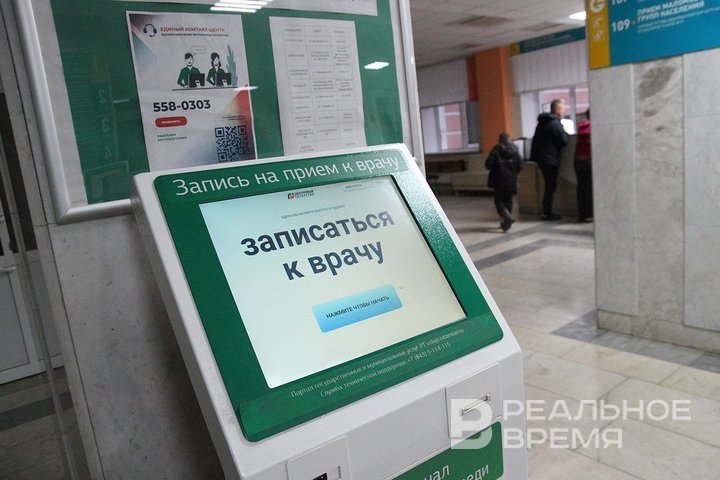
Every ninth resident of Tatarstan dies an unnatural death
The life expectancy in Tatarstan for the first 11 months of 2024 was 74.59 years. This is the 15th place in Russia and the first place in the Volga Federal District. And this is the worst indicator in the last three years: in 2023, the indicator was 75.3 years, in 2022 — 74.8 years.
The overall mortality rate has also increased compared to 2023: 11.3 cases per thousand people versus 10.8. Despite that this is the lowest indicator in the Volga Federal District, its growth is worrisome. Although the minister tried to shift the focus in his report to emphasise that Tatarstan managed to maintain 22nd place among Russian regions and avoid slipping further down the rankings, the situation raises serious concerns.
As always, diseases of the circulatory system are the leading causes of death. However, their mortality has decreased significantly since 2019, from 48.7% to 39.8%. Cancer mortality is also decreasing (but it remains in second place): it was 17.1%, now it is 15.9%.
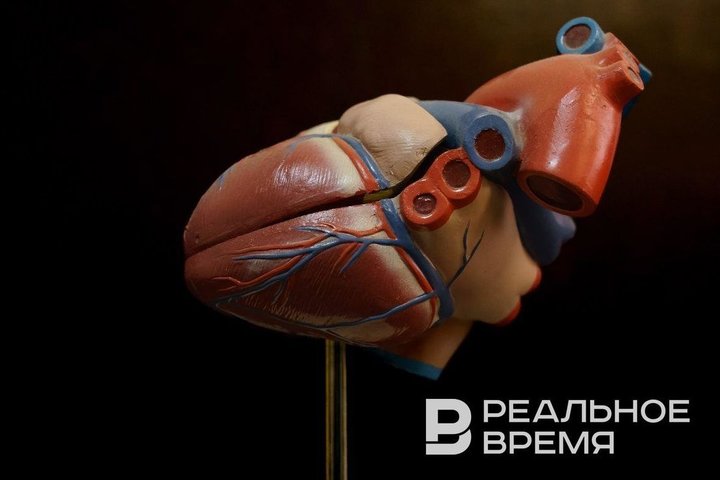
In third place is mortality from external causes (accidents, injuries, etc.). It has almost doubled in five years: in 2019, it made a 6.7% contribution to overall mortality, now it is 11.6%. That is, every ninth resident of Tatarstan dies an unnatural death.
“The main contribution to mortality from external causes is made by road accidents," Marsel Minnullin explained. “There is an increase of 11.4% compared to the same period in 2023. Poisoning and alcohol exposure with uncertain intentions — an increase of 24%. Other external reasons are an increase of 69.1%.”
The minister seriously considered the problem of mortality, especially against the background of the fact that it was increasing at the beginning of 2024. He examined the death rates after calling an ambulance from different angles, the death rate at home (which is higher in rural areas than in urban areas), and talked about the measures being taken in the republic to reduce the rate.
Later, praising Tatarstan for its advanced indicators, Ivan Deev, the director of the Department of Monitoring, Analysis and Strategic Development of Healthcare at the Federal Ministry of Healthcare, suggested considering mortality from external causes in an interdepartmental manner. Indeed, one cannot conquer alone. For example, with high mortality in road accidents, regional ministry of healthcare alone can do little to help, except to install additional ambulance stations on federal highways — which, by the way, it will do, among other things, in 2025. Or death by drowning — it clearly needs to be prevented not only by doctors, but also by employees of other departments.
On the contrary, child mortality is decreasing: 25.5 cases per 100,000 children, the lowest rate since 2019. In 2024, 217 children under the age of 17 died in the republic. 28% of them (60 cases) are deaths from external causes. Accidents, poisoning, drowning, falls, suicide, fire — all this killed the little citizens of the republic.
How to make sure that children are born in families
The more pleasant side of the demographic issue is the birth rate. The republic's medicine is doing its best in this regard. They introduced a second third-level perinatal centre in the Kazan Seventh Hospital. They introduce programmes to take care of the reproductive health of the population: they piloted a reproductive medical examination project, which will be replicated throughout the republic in 2025. They perform IVF within the framework of compulsory medical insurance (2,170 cycles last year). They persuade pregnant women not to have an abortion (57.2% of women refused to have an abortion in the first 11 months of 2024, 1,656 pregnancies were saved).
But for some reason, citizens do not really want to have children with the intensity that is necessary for the normal reproduction of the population. In search of reasons, the ministry of healthcare even reached the grandmothers: as Elena Ignashina, the head of the department of medical care for children and maternity services, said in her report, it is recommended to pay attention to the health of potential grandparents, because young parents would like to be helped with the baby. It turns out that citizens aged about 50-60 years should be healthy first of all in order to care for their grandchildren.
In his summing up speech, Rustam Minnikhanov, the rais of the Republic of Tatarstan, also worried about the birth rate. The rais is particularly concerned about the fact that the birth rate of even the first children is greatly decreasing.
“If the trend continues, the situation will be very difficult," warned Rustam Minnikhanov. “Considering the above, it is necessary to conduct a detailed analysis. We talk about demographics all the time, but we don't make any serious decisions. We are already receiving maternity capital and everything else we have. But we need some other solutions that could seriously change the situation. We definitely need to prepare a programme in this direction this year.
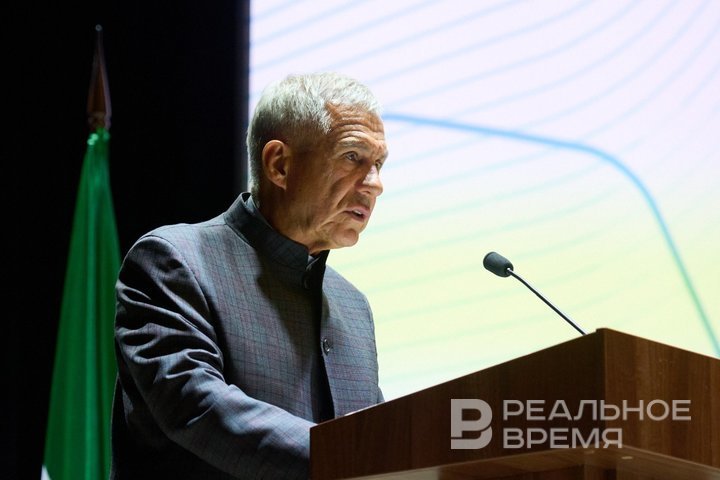
Transplantology — on the rise, robots — in the operating room
Transplantology continues to develop in Tatarstan, although the numbers have slightly decreased compared to the record 2023. However, they still remain impressive — in 2024, the republic's doctors transplanted the liver 56 times, kidneys 100 times, and heart 22 times. Four transplant centres currently operate in Tatarstan (RCB, DRKB, MKDC and Naberezhnye Chelny BSMP), and in 2025 they will be joined by City Clinical Hospital No. 7 named after him. Sadykova.
Among the innovations -robotic technologies in Tatarstan operating rooms. At the end of the year, the first operation in the republic, performed using a medical robot of the latest generation, became a sensation. It looks like a scene from a science fiction movie: the patient is on the table, next to him there is an assisting doctor, and all the manipulations are done by a... multi-armed robotic installation. It is remotely controlled by a surgeon (which means that, for example, a doctor in Vladivostok can perform such an operation on a patient in Kaliningrad).
The first such operation in Tatarstan was a prostatectomy for prostate cancer in the Republican Clinical Oncology Dispensary (RKOD). At least a hundred more such interventions are planned for 2025.
In order to finally consolidate the effect of what was said, right during the board meeting, the audience connected via VCS to the RCOD operating room — where just at that time, literally live, they were performing a second similar operation.
Right during the board meeting, the audience connected via VCS to the RCOD operating room, where a second similar operation was being performed literally live.
Another innovation is that Tatarstan doctors are mastering artificial intelligence, which has been taught to analyse images. Thanks to a powerfully trained medical neural network, now the eye and experience of a specialist in functional diagnostics are supplemented by AI, which searches for correlations and is capable of predictive analysis. In 2024, the Radiological Data Centre of the republic increased its staff from 2 to 16 doctors, 104,829 studies were processed here during the year, of which 77,816 images were processed by AI!
Development of national projects, care for veterans and... the fight against alcoholism
In addition to the new national projects that will be put into effect in 2025, Tatarstan has formed its own three-year programmes: for example, 6.5 billion rubles will be spent on upgrading equipment in clinics, 2 billion of which have already been allocated in 2025.
Within the framework of the national project New Technologies For Saving Health, the creation of an interdepartmental medical clinical centre in the republic is being discussed, which will focus scientific research on various technologies in the field of healthcare. According to the rais, the Ministry of Healthcare will have to assume the role of coordinator of this project.
The coming year is the year of the 80th anniversary of the Great Victory. Rustam Minnikhanov instructed to provide each veteran of the Great Patriotic War with a personal supervisor who would immediately respond to emerging problems and ensure the provision of timely and qualified medical and social assistance.
The head of the republic unexpectedly paid special attention to the topic of alcoholism.
“Every morning begins with a report from the Minister of Internal Affairs. And every day there is some kind of incident related to alcohol intoxication. People close to each other are killing each other there! It's not normal," the rais was indignant. “We generally have to treat alcohol [strictly]. Even our religion does not support this. And I think this topic is important both in Orthodoxy and in other religions. So I think we should take up this topic along with demography, too.”
The green snake creates a lot of problems for residents of the republic (both in terms of health and offenses), and therefore, as Rustam Minnikhanov said, the programme to combat it should be more effective.
In Tatarstan, work with addicts is intensifying — for example, recently a drug treatment passport of the region has been drawn up in the republic.
By the way, the minister said in his report that work with addicts is intensifying in Tatarstan — for example, recently a drug treatment passport of the region has been drawn up in the republic (13,500 Tatarstan residents have already been included in such passports). 978 people have undergone psychotherapeutic treatment through the drug dispensary. The founder of the entire drug rehabilitation system in the republic told our publication more about this.
And at the end of the meeting of the Board of the Russian Academy of Medical Sciences of Tatarstan, as usual, he warmly and sincerely thanked the doctors for their work.
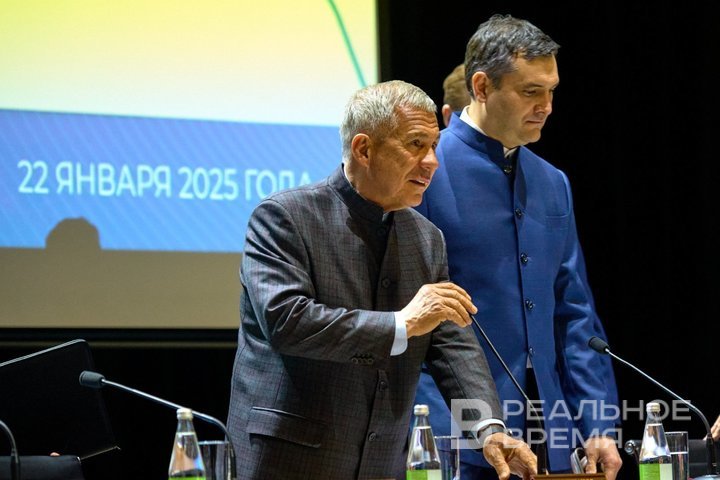
“Of course, different things happen. Both corruption and more. But if something happens to us, where do we go? We're coming to you!” Rustam Minnikhanov spoke, switching to Tatar. “You work with such diseases. We're even scared to look at photos, and you're working with this. Therefore, you not only take care of us, but also take care of yourself! We need you to be efficient, cheerful and energetic. Thank you!”